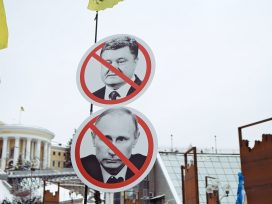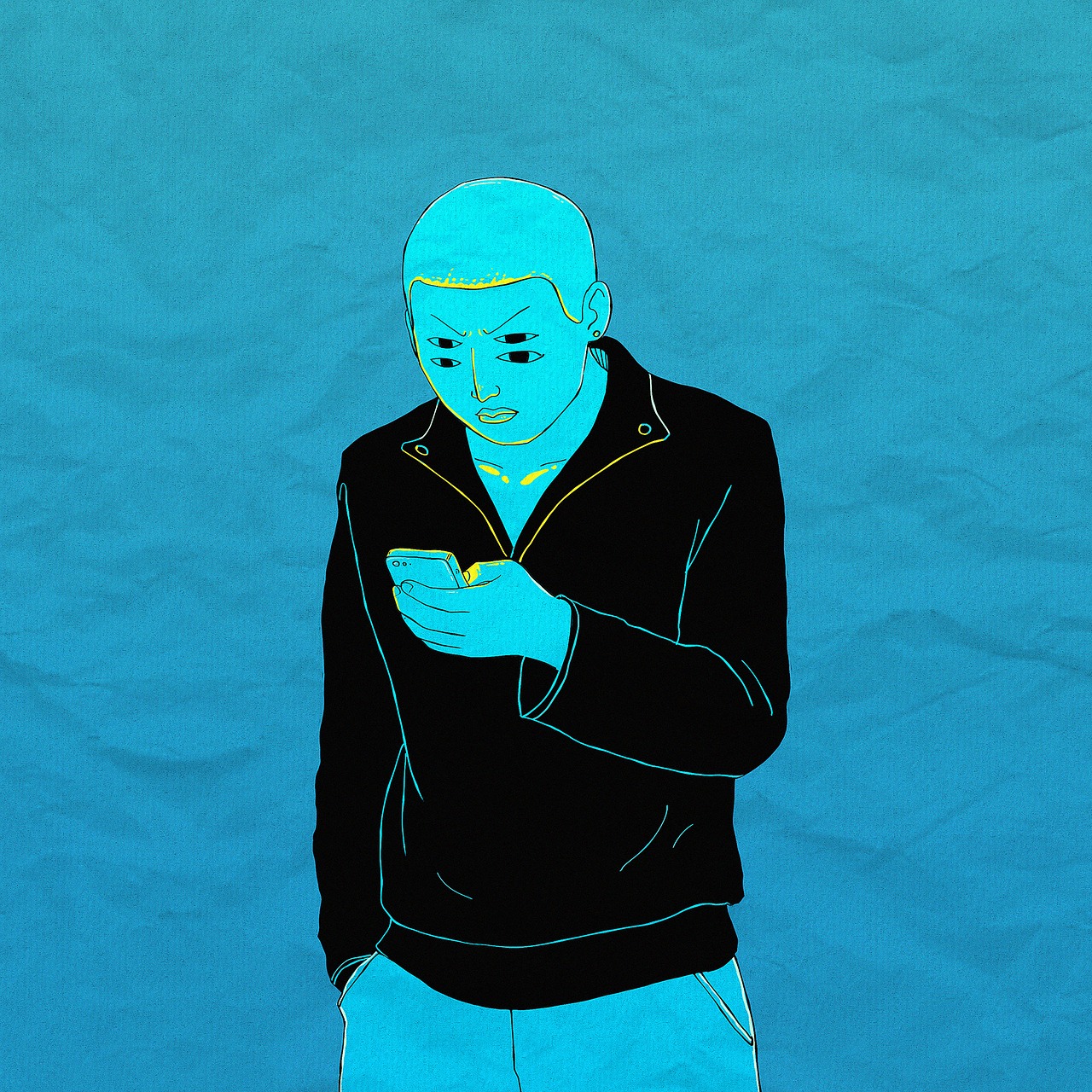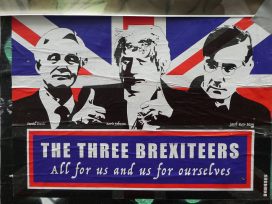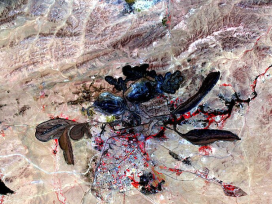Control groups
An interview with William Davies on politics in an age of sensation
The classic liberal distinction between war and peace has expired. Markets have learnt the lesson that gut reactions matter, but political institutions of liberal democracy are still lagging behind. What we need is a politics of empathy, William Davies argues.
Tobias Haberkorn: The title of your book, Nervous States, alludes to the nervousness of our times. Politics and the media, the workplace and private life, everything has sped up through technology. Has the world simply become too fast for our liberal democracies to function?
William Davies: Acceleration is certainly a central aspect of our political and economic life, and one of the reasons I’ve written Nervous States is that I wanted to understand what this does to our liberal institutions. First of all, it means that spaces of deliberation and critique, which have always been integral to liberalism, come to appear slow and ‘out of touch.’ Modern science, which has been the hallmark of modern progress for four centuries, moves at a pace that is increasingly left behind by the rolling news cycle of digital media and the hunger for instant reaction and decision. Populists seize the opportunity to promise immediate action while liberalism only ever offers mediated action via law, political representatives, editorial peer review and so on. All of this comes to be experienced as intolerably slow and self-interested in the age of the platform. I think, secondly, that our sense of what counts as authentic or honest action has shifted from the domain of reason, with all of the problems and exclusions that went with that, towards that of neurology and automatic response. In the age of Twitter, we no longer judge politicians in terms of their arguments, speeches or policies, but in terms of their facial expressions or instant reactions to some unexpected live event. Like any cultural content, politics is increasingly evaluated in real time, in terms of clicks, eyeballs, likes and so on. All of this means that public figures, be they in the media, politics or arts, end up as live performers — a bit like sports stars or stand-up comedians — who achieve credibility through a kind of carefully honed spontaneity. Traditional forms of liberal authority were never designed to achieve such immediate effects on an audience.
TH: In your book, you describe how the liberal order rests on two distinctions that are both philosophical and political: between body and mind and between war and peace. How did these distinctions come to be foundational for liberalism and why do you think they no longer hold?
WD: From the point of view of intellectual history, liberalism assumes that humans have a special, ultimately God-given capacity to think autonomously, rationally and reasonably. Descartes formulated this idea within epistemology in the first half of the seventeenth century; Thomas Hobbes based his idea of political liberalism on it. With the notable exception of warfare, the body with its passions, its emotions and its morbidity should be kept out of politics. Therefore, an almighty state should monopolize the use of physical violence. This is a first act of political representation: the state warrants something that is in the interest of all, that is the possibility to live in peace and prosperity. In terms of practical politics, liberalism starts with the Westphalian peace treaty of 1648. The European powers divide territories in which they guarantee peaceful cohabitation.
TH: So, while the political representation of a common good — peace and prosperity — has always been essential to liberalism, democratic procedure is not?
WD: Yes. The lurking truth of today’s populisms is that there is nothing especially democratic about the liberal state. There are various ways in which society can be represented other than democratically. Statistics and expert knowledge provide pictures of society. The state represents the interests of the population by creating peace through rule of law. Such mechanisms are not democratic in the sense of actually giving anyone a voice. But they enact representation by taking the chaotic, complex mass of millions of people all living together in a nation and acting on behalf of all them. The ensuing policies might be not particularly just or egalitarian. But in terms of an idea of government, they are nevertheless a liberal breakthrough because in no sense did medieval monarchs act as if they were acting on behalf of anyone else. There was no sense they were delegated to do what they were doing.
TH: In recent decades, warlike rhetoric and policies have pervaded more aspects of civil life: war on terror, war on drugs, cyberwar, trade war — at this point we could probably add climate war and warlike fortifications against immigration.
WD: It’s worth mentioning that the strict division between war and peace ever only applied to the core areas of the European liberal project. In colonized territories, there was no legal or practical differentiation between war and peace. The way in which these areas were invaded, governed and policed was through constant resort to military violence and warlike techniques of combat and control. However, in its ideal of itself, liberalism tried to keep the use of military and civilian power separate, to develop a civilian police force, civil laws and individual rights. In situations of war, these legal provisions go overboard.
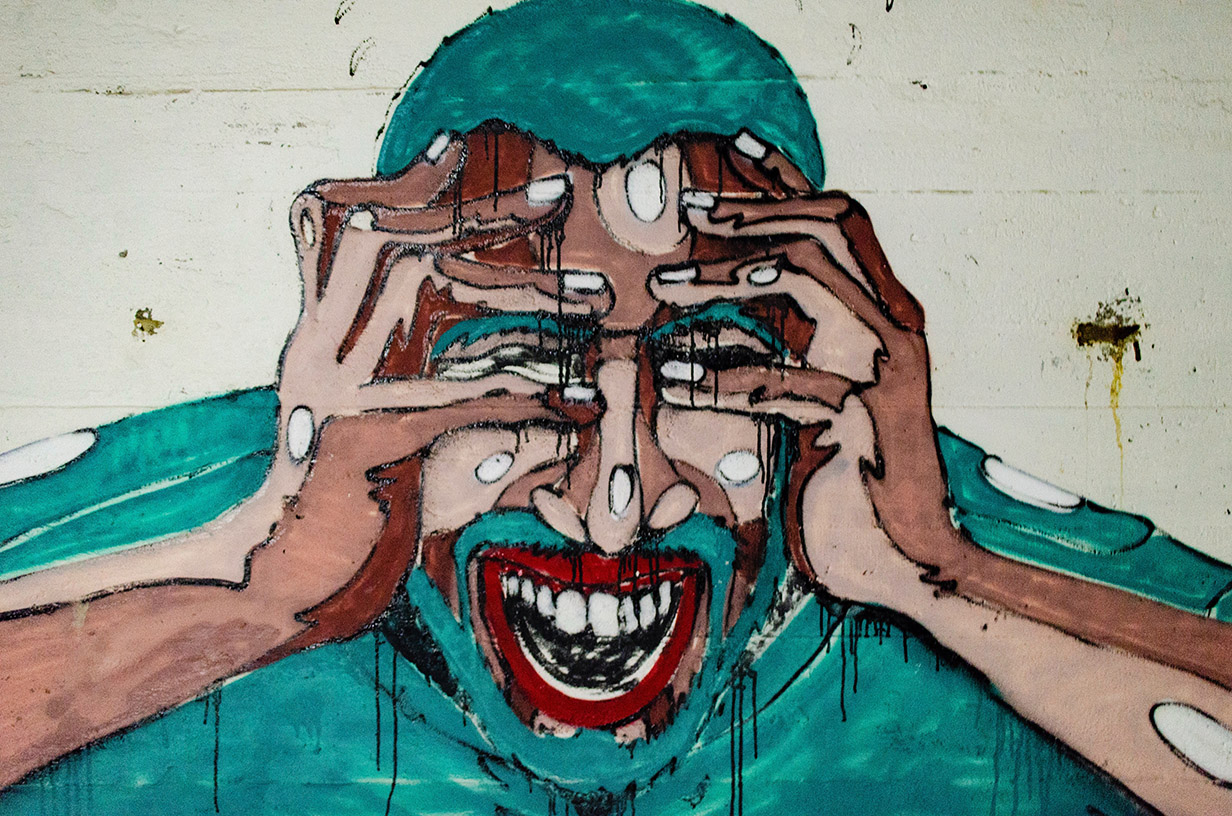
Photo by Aarón Blanco Tejedor from Unsplash
TH: Do you think globalization has moved from a state of relatively peaceful economic competition to a generalized, quasi-planetary civil warfare?
WD: I think there are a couple of symptoms of how the division of war and peace is no longer so secure in Western liberal democracies. On the one hand, military language has entered politics in a much more regular fashion. Conspiracy theorists talk about the ‘war for your mind.’ You’ve mentioned the rhetoric of war in what once were ordinary fields of politics. On the other hand, the exercise of actual warfare has become far less tangible and distinct. One manifestation of that is the rise of so-called ‘information warfare,’ which tries to destabilize information environments and which is allegedly what the Russian state is doing around the world. The US military is engaged in forms of intervention and combat that don’t have any of the classical dimensions of warfare any more, like drone warfare.
TH: You talk a lot about the way in which expertise and knowledge are produced and validated. Do times of war and peace have different regimes of truth?
WD: A situation of warfare is one in which nothing ever stays still very long. You have to be constantly on your guard, you need to develop fine-tuned ways of detecting change and threats, you need to be suspicious of everything. In war, you don’t have the time to carry out dispassionate objective studies of the sort that goes on in a laboratory or in a peaceful society. When things speed up — as in the case of contemporary financial capitalism — real-time guesswork, intelligence and immediate impressions become crucial. A seemingly peaceful civil society gradually takes on some qualities of warfare. I think this description applies to large parts of globalized capitalism. In Nervous States I am trying to explain this in particular by the infiltration of digital technology into our society over the late twentieth century, but also by the combative, quasi-military entrepreneurial figure that comes out of Austrian neoliberal thinking.
TH: To take up your vocabulary from the book, it’s about acting on the basis of sentiment rather than fact.
WD: On the basis of sensation, certainly. We think about feelings as meaning our emotions in the way we say ‘I’m feeling happy.’ But feeling in another sense of the word describes how we sense the world, how we detect the temperature of something or if it’s safe to eat. Feeling and emotions are an absolutely crucial cognitive capacity, they are what your nervous system does. In the last 25 years or so, it has become a creeping aspect of intellectual and political culture, particularly in the business world, to recognize that reason and emotion are not separate things. The most influential scientific argument about this has probably been made by the neuroscientist Antonio Damasio in his 1994 book Descartes’ Error, where he uses all this scientific evidence to show that people who can’t feel things can’t reason either. The industries of marketing, of nudging and behaviour change have been alert to these findings. Our democratic systems have lagged behind.
TH: Would you say that the business world is operating on more realistic assumptions about the human being than democratic institutions do?
WD: I would say that some strains of neoliberal thinking sit particularly well with a world driven by volatile emotions, instability and constant change. In the writings of Friedrich Hayek and Ludwig von Mises, but also in the work of someone like Joseph Schumpeter who is not normally considered a neoliberal, the language of entrepreneurship is riven with military metaphors. The entrepreneur is a heroic, courageous disruptor who acts on this uncertain situation, trusting their instinct, trusting their nose. This is very similar to the language that Clausewitz used to lavish praise on Napoleon in the early nineteenth century as someone who didn’t sit back and wait for the evidence to arrive but actually seized control of the situation. The way business strategy is taught in business schools today draws as much from business case studies of Apple’s takeover in the 1990s or Kodak’s loss in 1970s as from writings like Sun Tzu’s The Art of War, Clausewitz’s On War and the works of the British military strategist Liddell Hart from the 1940s. Our political realm on the other hand, maybe because its institutions stem from a time when the media, the economy and political life were working at a much slower pace, hung on to the idea that people generally act on the basis of reasonable deliberation and the calculation of their best economic interests. The concept of interest is another classically modern, liberal seventeenth-century idea, that people have these things on their mind that are good for them and that in one way or another they will act towards them through market behaviour. What you really have in market situations is uncertainty.
TH: Digitization offers both more speed and uncertainty, and enhanced types of control.
WD: You see this in the way our financial system accelerated massively in the late 1980s with the digitization of stock markets. Financial markets were deemed to move at a speed that individual traders and let alone financial regulators simply could not keep up with. Sophisticated digital technology was needed to maintain a sense of ‘control’ in market situations. The digitization of social and political life that we associate with social media of the 21st century has led to a similar level of turbulence and emphasis on real-time reactivity in political leadership. I don’t mean to be a romantic about liberal democracy or to imply that in the past everything was done with great rationality and consideration but it’s clearly the case that digital acceleration means that the possibility for those pauses where critical reflection might once have taken place have come under great strain.
TH: You describe the smartphone as a quasi-military device that allows for all sorts of control operations in our lives.
WD: What the phone promises you psychologically is not content as such, but a space on the screen that is totally obedient to you. This translates into the illusion that the world, seen through the screen, will be equally obedient. I think any effort to try to understand smartphone addiction needs to grapple with the fact that it is much closer to a control technology than an information technology. Of course, it tells you useful things but what it offers you is navigation and control, the ability to make a fast-moving and confusing world obey you. One of the main contrasts in the book is between a view of the world that tries to represent it — the classically modern one of the seventeenth century for which the map would be a classic example — and a view of the world which brings it under control, which is a military ideal. Today, we often have no idea where we are going until we put a destination into our phone and follow the instructions. This navigation-based approach to the world originates from military technology and the need to bring the world under control.
TH: The notion of control is interesting. Expressions like ‘being in control’ or having a situation ‘under control’ seem to have spread along with socioeconomic precarity.
WD: It is also a military expression, an expression for situations of danger and conflict. A military leader wants to be in control of their troops, and ideally their opponent. They are mastering a situation in real-time. If I’m in control of my body, my nervous system is doing what I instruct it to do. If I’m in control of my military, my orders are getting through to the front line and are yielding results. Not being in control means that you are sending information but the situation doesn’t respond to it. You may be trapped, at the complete mercy of your boss in your workplace or the steering wheel of your car is not working. Loss of control is something people fear for in their working lives, in their physiological lives because of disabilities or morbidity, but it also becomes an almost existential threat when they think society is no longer under anyone’s control. All these things resonate with one another and make the promise attractive — to put it the most extreme form — that a sort of military dictator would come along and take back control.
TH: One of the most fascinating chapters of the book talks about trauma and self-harm. You explain that for people who live under post-traumatic stress, cutting themselves, for example, could be a way of feeling their body again, of feeling control over their body through pain. Isn’t there an interesting parallel to Brexit with its claim to ‘take back control’? At the same time, as hard Brexiteers take political control, they are, economically speaking, inflicting additional pain on the population.
WD: I didn’t want to overplay the analogy in the book, but I think you are right. I was looking into the history of self-harming because it might help understand aspects of politics that are completely incomprehensible under a rationalist paradigm. From the sixties and seventies onward, self-harming behaviour became interpreted less as what had once been called a ‘cry for help,’ a communicative act towards somebody you might need help from, but increasingly as private acts of affective regulation. Self-harm could also include certain types of drug addiction or just drinking in the evening, which are also means to bring oneself and one’s feelings under control. The ultimate fear for many people — and it’s a fear that is most graphically and physically realized in situations of traumatic stress — is loss of control. For example, you can have two similar car crashes, with similar levels of pain and injury, but the one that is more likely to result in post-traumatic stress disorder is the one from which it is harder to escape immediately afterwards. It is the feeling of complete vulnerability to circumstance, of being completely at the mercy of one’s situation that produces a huge feeling of lost control. A lot of the appeal of the slogan ‘take back control’ comes from a similar dimension of our psyche.
TH: Speed and the necessity to react with your guts is a phenomenon where the distinction of body and mind is undermined. Another phenomenon you speak about in the book is pain and degrading health. It’s hard to draw a line between effects on the body and effects on the mind.
WD: That’s right. We have all heard about the divides that have carved down the middle of many Western liberal democracies over the past decades, which in some ways are legacies of neoliberalism: between the metropolitan centres and the rural periphery, between those with degrees and those without. Much less attention is paid to how these divides correlate to vital parameters such as health, pain and age. More than anything, Brexit showed an age divide. In France, the Le Pen vote maps closely onto clusters of regions with lower health prospects and life expectancy. These parameters of success for populist parties indicate that the tidy liberal assumptions about how politics ought to work no longer hold. A basic liberal assumption is that people will stick with the political status quo as long as they are getting a little bit better off economically. And I think one of the things that we have to understand as an aspect of human… not so much psychology — it’s a psychoanalytical and existential issue as much a psychological one — is that there is a yearning for control and meaningful authority that seems to be lacking in existing capitalist societies. The capitalist liberal system has come to be seen as a system that has no control, where no one is taking authority, where no one is able to deliver justice in any significant way.
TH: You mention the sentiment that a basic moral contract between society and its individual members has been broken, a sentiment that became dominant in the white population of America and Great Britain only recently, right?
WD: I think it has been building since the 1990s, but it became palpable in political attitudes and in voting behaviour since the financial crisis. One of the questions that concerned me in the book is: if the conventional liberal story about human beings does not hold any more, what is it being replaced with? Liberals believe that human beings have interests and that even if they do not fully recognize their interests themselves, they are better off if someone represents them according to some rational economic and mathematical logic where people get a bit richer and live a bit longer each year. I think a different version of human subjectivity needs to be considered, an embodied subjectivity, in which something that conventional economists cannot make sense of is being accounted for: that feelings of loss and the impact of pain are more memorable and politically decisive than feelings of pleasure or the possibility of gain. There is an aspect of human psychology which I think Freud was attuned to, that we are far more shaped by our losses and sufferings and our feelings of belittlement or humiliation, and that these experiences last far longer than victories, successes or achievements.

Embassy of Intimacy – Dutch Design Week 2017. Photo by Hanneke Wetzer via Mumu from Flickr
TH: But don’t you think that the rhetoric of greatness and retaking control is largely based on illusions about a golden age that never really existed?
WD: Maybe they are. But I feel that unless you can engage with these aspects of human psychology, you won’t be able to make much sense of things like nationalism. Nationalism is often forged in experiences of defeat rather than triumph. So much of the rhetoric of Brexit is about how Britain is allegedly humiliated by Europe, how it has lost a greatness it should recover. Trump claims that the U.S. has been humiliated by countries like Mexico and China. This is a very powerful psychological element. I think that one of the things I was trying to get at in writing about the body was the way in which these feelings of having lost control and dignity are as much symptoms of physiological conditions as they are of psychological ones because they are — to use Heideggerian language — about our being in the world, which is an embodied condition. It’s not about a rational account of ‘are things better or worse than they used to be?’ By rational economic measures, things are mostly better than they used to be. But that doesn’t speak to the sense that our being in the world is one that has suffered from a loss of authority or control.
TH: In Nervous States, you mention the recent opioid crisis and the decline of life expectancy in the US. These phenomena of bodily degradation have touched the rural white population more than any other group. It is a group that is losing status and economic prosperity, and it is largely supporting Donald Trump. But black communities in America have been in much worse economic and physical situations for centuries. Populations that have been enslaved or racially discriminated against have probably drawn identity from humiliation too, but this didn’t necessarily lead them to endorse extremist authoritarian political options. They were often holding on to a progressive hope, however far removed it was for them.
WD: That’s an interesting point you make. I think you have to consider different time horizons. If you look at the evidence from Europe, people always look at the extent to which nationalism and populism correlate to economic distress. One of the studies I cite in the book shows that this needs to be understood as a dynamic phenomenon. The great clusters of nationalist-populist support are not in areas where unemployment is highest but where it has been growing most rapidly. It is often a short-term loss of status, where you remember having had a better status, that drives people towards these political options. Mike Davis wrote a great piece in Jacobin about Trump not long after the election where he pointed out that if it weren’t for a cluster of counties in three states, Hillary Clinton would be president. Davis looks at those particular counties which swung from Obama to Trump in Michigan, Pennsylvania and Wisconsin in 2016. He points out that all of them had had a major plant closure during the election campaign itself.
TH: Would you say that a relatively modest economic decline has more political impact than long-suffered misery?
WD: This is an interpretation you could draw from the data. But in any case, we live in a political world today where questions of suffering, disease and mortality have reentered the centre of the political scene. Not only in the US, but also in Britain, the trends of life expectancy are pointing downwards. On the other end of the age spectrum, political activism has become much more existential in nature — think about things like Black Lives Matter or the Extinction Rebellion movement. Politics has become about questions of life and death again in a way that blows a hole in a key aspect of the Hobbesian liberal project, which is that unless you declare war, politics would not be shaped by mortal concerns. Over the past two decades in America, orders of magnitude more people have died due to opium overdoses than in the Vietnam War. Capitalism is generating problems that impact people’s bodies and mortality. This is a phenomenon that rationalist social sciences of economics or behavioural psychology are not equipped to deal with. It’s another reason why a more psychoanalytically informed approach to subjectivity is necessary.
TH: Towards the end of the book you’re saying that — going back to the initial distinctions — we cannot return to an idealized world of civil peace and disembodied, purely cerebral political discourse. Politics has to consider the body, it has to deal with visceral fears and be they irrational. We need a politics of empathy with an ability to rebuild trust. The way authoritarian leaders are trying to do this is to draw sharp distinctions between whom they want to be empathetic to and whom not, whose privileges they are protecting and who they want to shield off from them by closing borders, restricting immigrant protection, criminalizing life-saving missions in the Mediterranean and so on. Is there a way in which liberals can counter that strategy?
WD: I think we have to realize that politics has once again become infiltrated by fundamental existential problems like mortality, loss, memory and bodily suffering. And I think the way in which economic, environmental and social matters get discussed has to cut back to a register of humanity. In late March, Alexandria Ocasio-Cortez gave a great speech in a House of Representatives committee that articulated something I was trying to get at in the book, where she talked about how climate change is not an elitist issue. She was referring back to some Republicans who described the Green New Deal as an elitist liberal issue, to which she listed many of the ways in which environmental degradation is impacting on people’s lives and literally killing them. Farmers losing their livelihoods due to flooding, children in the Bronx whose lives have been cut short by air pollution and so on. One thing I think scientists and progressive liberal policymakers do need to do now is to connect with a sense of existential finitude. We don’t have much time, things are urgent and that the sort of human impact of policies on people’s lives and their bodies and their health I think is all going to be absolutely crucial.
New York congresswoman Alexandria Ocasio-Cortez responds at a house committee hearing to Wisconsin congressman Sean Duffy suggesting the Green New Deal was elitist, 26 March 2019.
TH: Is conveying urgency enough to restore trust?
WD: I think that the legitimacy of the liberal state lies in its capacity to honour promises. This is one of the reasons why the liberal state is in such crisis right now because ordinary people don’t believe that it’s trustworthy and what it says and what it does are no longer the same thing. People realize Donald Trump is not trustworthy either but his authority doesn’t depend on his words and his actions are converging in the same way that the liberal state does. When Clinton lies it’s a big problem because she’s liberal. When Trump lies it’s not a problem. He didn’t position himself as an honest person in the first place.
This hiatus shows how a fundamental aspect of public life is broken: a shared phenomenology or a sensus communis in Hannah Arendt’s terms. For 350 years, the state has been a precondition of a shared thing called society, but today, an increasing number of people see it as something to be fundamentally suspicious and ultimately cynical about. That doesn’t mean all social and communal life is necessarily dependent on the state. But for there to be this shared reality that we think of as a society, the state, along with academics, has always been fundamental.
I think as people ceased to believe politicians, the ability to credit the fact that there is something like a shared social reality has fallen to pieces. So the epistemic crisis that everyone has picked up on — the ‘post-truth world’ we seem to be living in — is deeply linked to the crisis of liberal democratic representation. In order to repair this and to restore trust in the political system, small, comprehensible measures impacting the physical lives of people will be crucial.
This interview was originally published in The Point Magazine. A shorter version of this interview was published in German in the December 2019 issue of Merkur.
Published 17 January 2020
Original in English
First published by The Point Magazine
© William Davies / Tobias Haberkorn / The Point Magazine / Eurozine
PDF/PRINTIn collaboration with
Newsletter
Subscribe to know what’s worth thinking about.
Related Articles

Losing privileges
Young people struggling with screentime
Some governments use legal restrictions to battle social media use; others leave families and individuals to self-regulate. Who’s responsible for young people’s addiction problems?

To have a body
Esprit 3/2025
Esprit revisits the philosophy of Maurice Merleau-Ponty: including Guillaume Le Blanc on ‘incarnation’; Corine Pelluchon on eco-phenomenology; and Judith Revel on Merleau-Ponty, ‘the eternal runner-up’.
